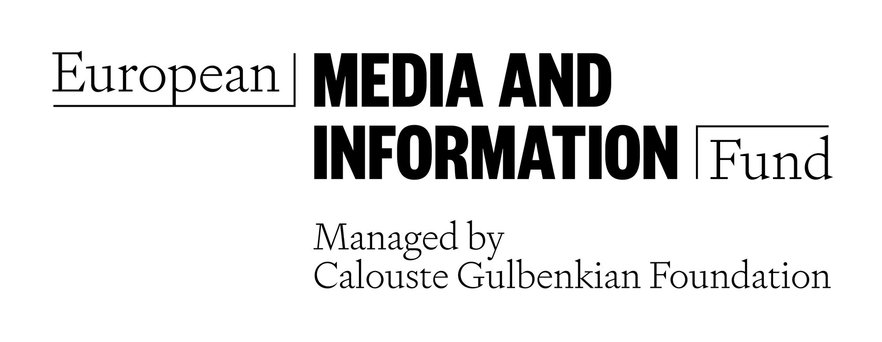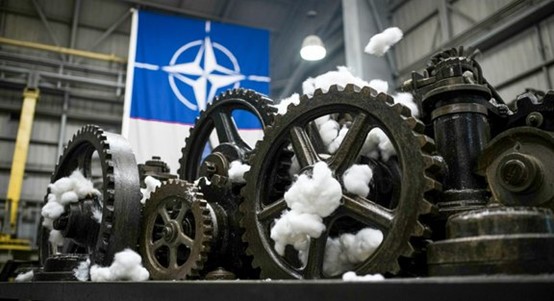Māris Cepurītis, Director and researcher at the Centre for East European policy studies
The USA hosted a historic NATO Summit in Washington DC on the 10th and 11th of July, marking 75 years since the Alliance’s creation. While the world has changed significantly since 1949, ironically the North Atlantic Treaty Organisation’s primary opponent today is almost the same country as when the alliance was formed – Russia and its predecessor, the USSR. The irony is that the trajectory and aggressive performance of Russian foreign policy have contributed to the consolidation and gradual build-up of the Alliance’s defence capabilities, helping it to strengthen its core functions of deterrence and defence. When analysing the statements of Russian officials about NATO and the Washington summit, one gets the impression that the view of NATO has been shaped behind the looking glass – in the world shaped by the rhetoric of Russian officials, NATO is portrayed as an aggressor, unwilling to listen and accept Russia’s specific demands regarding Ukraine and instead of reaching an agreement with Russia, choosing to escalate the situation.
It is important to add that Russia’s activities in the context of the NATO Summit are not only rhetoric by officials and propagandists but also sending signals through military activities, such as exercises of the armed forces or targeted military actions on the battlefield. For example, the Russian missile attack on Kiyv on the 8th of July and the strike on the “Okhmatdyt” children’s hospital are inhumane but deliberate “roadblocks” provided by Russian commanders to NATO leaders on their way to Washington to saturate the media with questions about how NATO and its member states would react to such an action. With such an attack, Russia also seeks to demonstrate its ability and boldness, under the pressure of political consolidation in the West, to carry out attacks on the Ukrainian capital and that Ukraine and the West are incapable of stopping Russia.
From 8 July, the Belarusian and Chinese armed forces exercised their ability to work together on the NATO border in Belarus. After the NATO summit, Russian and Chinese officials announced joint naval exercises in southern China. It should be noted here that with the exercises in Belarus (which, given Belarus’s close dependence on Russia, would not have happened without Kremlin approval) and China, not only Russia but also China is making its position known on NATO decisions. By exercising in Belarus, China is responding to the more active involvement of the US and European countries in East Asian security issues, showing that China can also play a role in the European security scene.
Reacting to the NATO summit decisions, Putin’s spokesman Dmitry Peskov expressed Russia’s position, saying that the Alliance’s decisions demonstrated a desire to remain Russia’s enemy, as NATO showed no flexibility on Russia’s specific position on Ukraine’s NATO membership, which was one of the reasons for the invasion of Ukraine. Peskov added that these steps by the West show that there is currently no prospect for peace talks in Ukraine and that it is the duty of all those responsible to fulfil the objectives set by Putin.
Similar sentiments can be seen in the Russian Foreign Ministry’s comments about the NATO summit, with its press secretary Maria Zakharova adding more detailed messages aimed at the Ukrainian public. For example, Zakharova claims that Ukraine is nothing but disposable for NATO in the geopolitical struggle with Russia and that the decisions of the summit are aimed at encouraging Ukrainians to continue the war by involving those who are not currently fighting directly. But the external unity on Ukraine’s NATO membership is “bursting at the seams”, as shown by the joint letter of US political analysts calling for Ukraine not to join NATO. There is also a lack of a common vision within the Alliance itself on how to continue supporting Ukraine or its accession to NATO.
Zakharova is ironic about NATO’s other activities, explaining that NATO is a tool of the US to spread its hegemony in the world, but when it comes to NATO’s activities as a defender of democracy, she says that the only democracy that needs to be defended is in the member states themselves and that it should be defended primarily from Washington. The summit was a flop because, despite the desire to demonstrate unity, it failed. However, the construction of Russia as an aggressor and a threat shows NATO’s aggressiveness and unwillingness to accept the position of other countries.
The Russian response was also prompted by NATO decisions to strengthen its nuclear deterrence capabilities and the bilateral agreement between the US and Germany to episodically deploy long-range weapon systems in Germany in 2026 as an exercise to develop such capabilities. Russian Deputy Foreign Minister Sergei Ryabkov attributed the statements from Washington to NATO’s desire to dominate in the nuclear field, which, according to Ryabkov, once again demonstrates the West’s inability to restrain itself on nuclear issues.
Russian officials’ statements at the NATO summit tend to simultaneously give the impression of NATO’s weakness and its aggressive intentions towards the world and Russia. The absence of a decision on Ukraine’s admission to NATO or the promotion of views of officials and experts that differ from those of the leaders of NATO member states are highlighted to illustrate NATO’s perceived weakness.
The statements of Hungarian Prime Minister Orbán and Turkish President Erdogan, which raised the issue of peace and thus differed from NATO’s common position, were particularly highlighted in the Russian media space in the context of the NATO Summit. Statements on the importance of nuclear capabilities and NATO’s aggressive intentions outside the Euro-Atlantic area are used to illustrate NATO’s aggressive stance, thus presenting NATO as an organisation unfriendly to China and the Global South.
The lack of progress in Ukraine’s relations with NATO is highlighted, as are the repeated messages about Ukraine as a puppet of the US and NATO, useful only to spite Russia. Such statements are an attempt to gain access to the Ukrainian public and to cast doubt on the justification for continuing the fight against Russia.
In Russia’s foreign policy vision, long before the 2022 invasion of Ukraine, NATO was Russia’s most direct geopolitical opponent in the region, not so much as a military threat to Russia, but as an obstacle to its interests in neighbouring countries that it considered and continues to consider as its sphere of influence. The Kremlin’s propaganda mechanism also maintains a negative image of NATO and the Alliance’s major member states in Russian society, for instance, in May 2022, 82% of the Russian public viewed NATO negatively, while a poll conducted in May this year cited the USA, the UK, Germany, Ukraine, Poland and Latvia as Russia’s most unfriendly countries. Considering the rhetoric of Russian officials and propagandists, Russia will continue to maintain a contentious relationship with NATO and key countries of the Alliance, including positioning its invasion of Ukraine as Russia’s war with the US and NATO, not just Ukraine.
There are mixed assessments of the NATO Washington Summit, with critics noting, for example, the seeming lack of new decisions to strengthen NATO’s defence capabilities or the absence of an invitation to Ukraine to become a member. However, from Latvia’s point of view, the Washington Summit is an anniversary and implementation summit, as this year marks not only 75 years since the founding of the Alliance but also 20 years of Latvia’s membership in the world’s strongest defence organisation. Events in the regions close to us show that perhaps, had it not been for Latvia’s active diplomacy more than 20 years ago, which secured our admission to the alliance, modern history might have developed in a direction that would not have been pleasant for us.
It is important for Latvia that the Washington Summit marked the continuation of the decisions of the 2022 and 2023 NATO Summits to strengthen NATO’s defence capabilities in the Baltic Sea region by increasing Allied forces in the region and increasing the density of air defence capabilities, further developing the NATO Defence Plans and implementation mechanisms approved at the Vilnius Summit, intensifying cooperation with the defence industry and institutionalising the provision of assistance to Ukraine. It does not always take sensational announcements to show that the work on NATO, and therefore on our security, does not stop, whatever the impression Russia tries to give.
* Material first published on Delfi.lv
* The creation of this fact-checking material was funded by the European Media and Information Foundation, managed by the “Calouste Gulbenkian Foundation”.

